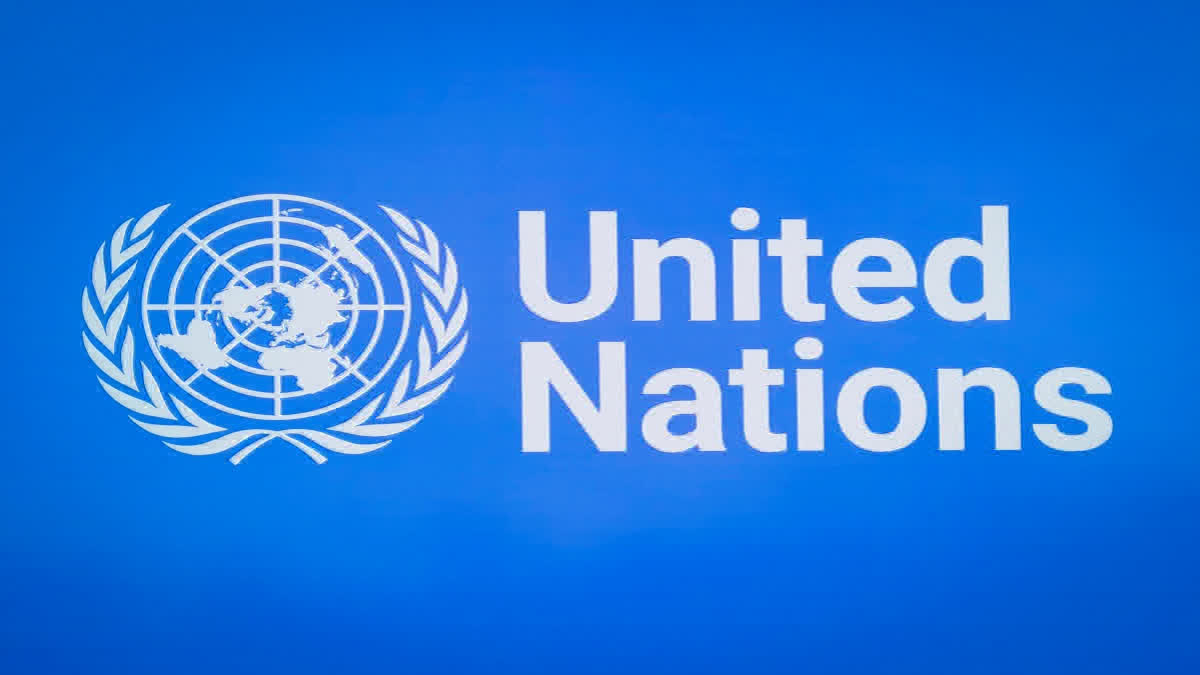United Nations: Terror group Islamic State was unable to mount large-scale attacks in India but its handlers tried to incite lone-actor attacks through supporters based in the country, a UN report has said.
According to the 35th report of the Analytical Support and Sanctions Monitoring Team concerning ISIL (Da’esh), Al-Qaida and associated individuals and entities, these terror groups and affiliates remained resilient and adaptable to external counter-terrorism pressure.
Aided by less centralised organisational structures, the threat they posed remained undiminished.
ISIL (Islamic State of Iraq and the Levant) is a terrorist group that aims to establish a caliphate in West Asia. It's also known as the Islamic State and Da'esh.
“ISIL (Da’esh) was unable to mount large-scale attacks in India. However, its handlers tried to incite lone-actor attacks through India-based supporters. The pro-ISIL (Da’esh) Al-Jauhar Media continued to spread anti-India propaganda through its publication Serat ul-Haq,” the report said.
The report also added that with over two dozen terrorist groups operating in Afghanistan, UN member states assessed the security threat emanating from the country as a continuing driver of instability in the region and beyond.
“Despite the loss of territory and attrition among senior and mid-tier leadership figures, the presence of terrorist organisations in Afghanistan posed a serious challenge to the stability of the country, as well as to the security of Central Asian and other neighbouring States,” it said.
Separately, the 20th report of the Secretary-General on the threat posed by ISIL (Da’esh) to international peace and security said that the severity of the threat posed by Da’esh remains concerning.
Despite steady progress by member states and international partners in targeting Da’esh leadership and financial operations, the group continues to demonstrate resilience and adapt its modus operandi, the Secretary General’s report said.
“The situation in Afghanistan remains concerning, with ISIL-K (Islamic State – Khorasan Province) continuing to represent a threat not only to the country but also to the region and beyond," UN Secretary-General Antonio Guterres said in his report.
"I continue to call upon all Member States to unite to prevent Afghanistan from again becoming a hotbed of terrorist activities affecting other countries,” Guterres said.
The report by the Analytical Support and Sanctions Monitoring Team further said that notwithstanding the measures taken by the Taliban to counter ISIL-K, the group represented the most serious threat to the de facto authorities, ethnic and religious minorities, the United Nations, foreign nationals and international representatives in Afghanistan.
“The sustained presence of ISIL-K and its activity in the country reflected the group’s ideological commitment to its own brand, portraying itself as advancing the wider Khorasan, its ability to leverage relationships with particular communities and the Taliban’s ineffective efforts to eliminate it,” the report said.
ISIL-K benefited from the Taliban’s inability to protect itself against infiltration and corruption among its own ranks, despite raids conducted to arrest disloyal officials.
It further added that the status and strength of ISIL-K remained unchanged, with the ISIL-K deputy, Mawlawi Rajab playing a more prominent role in high-impact operations inside Afghanistan, including suicide bomber attacks.
ISIL-K continued to build its capabilities to threaten Central Asian countries from northern Afghanistan. Previous terrorist attacks in Iran and Russia indicated the focus of ISIL (Da’esh) in the region and beyond, the report said.
The report said that ISIL-K maintained a presence across the Central and South Asia region, while Afghanistan remained the main hub for its recruitment and facilitation.
The group prioritised the movement of fighters into the country. Central Asians, mostly Tajik nationals, were recruited and used in this process.
“Principal routes to Afghanistan for new recruits include travel through Van Province in Türkiye, and Orumiyeh, Mashhad and Zahedan” in Iran, to enter Herat and Nimroz Provinces in Afghanistan.
The report added that Al-Qaida in Afghanistan sought to strengthen cooperation with regional terrorist organisations of non-Afghan origin that operate in the country (Tehrik-e Taliban Pakistan (TTP), Islamic Movement of Uzbekistan, Eastern Turkistan Islamic Movement (ETIM/TIP) and Jamaat Ansarullah to expand its presence in neighbouring countries.
“The Taliban maintained a permissive environment allowing Al-Qaida to consolidate, with the presence of safe houses and training camps scattered across Afghanistan. The de facto authorities continued to be sensitive to the profile of Al-Qaida personnel in the country,” the report said.
The Taliban continued to provide TTP with logistical and operational space and financial support, with one Member State noting that the family of Noor Wali Masoud received a monthly payment of 3 million Afghanis (roughly USD 43,000).
TTP established new training centres in Kunar, Nangarhar, Khost and Paktika (Barmal) Provinces while enhancing recruitment within TTP cadres, including from the Afghan Taliban.
There was increased collaboration between TTP, the Afghan Taliban and Al-Qaida in the Indian Subcontinent, conducting attacks under the banner of Tehrik-e Jihad Pakistan, it said.
“Greater facilitation among these groups and TTP in terms of the provision of suicide bombers and fighters and ideological guidance might transform the latter into an extra-regional threat and an umbrella organization for other terrorist groups operating in the region,” the report said.



